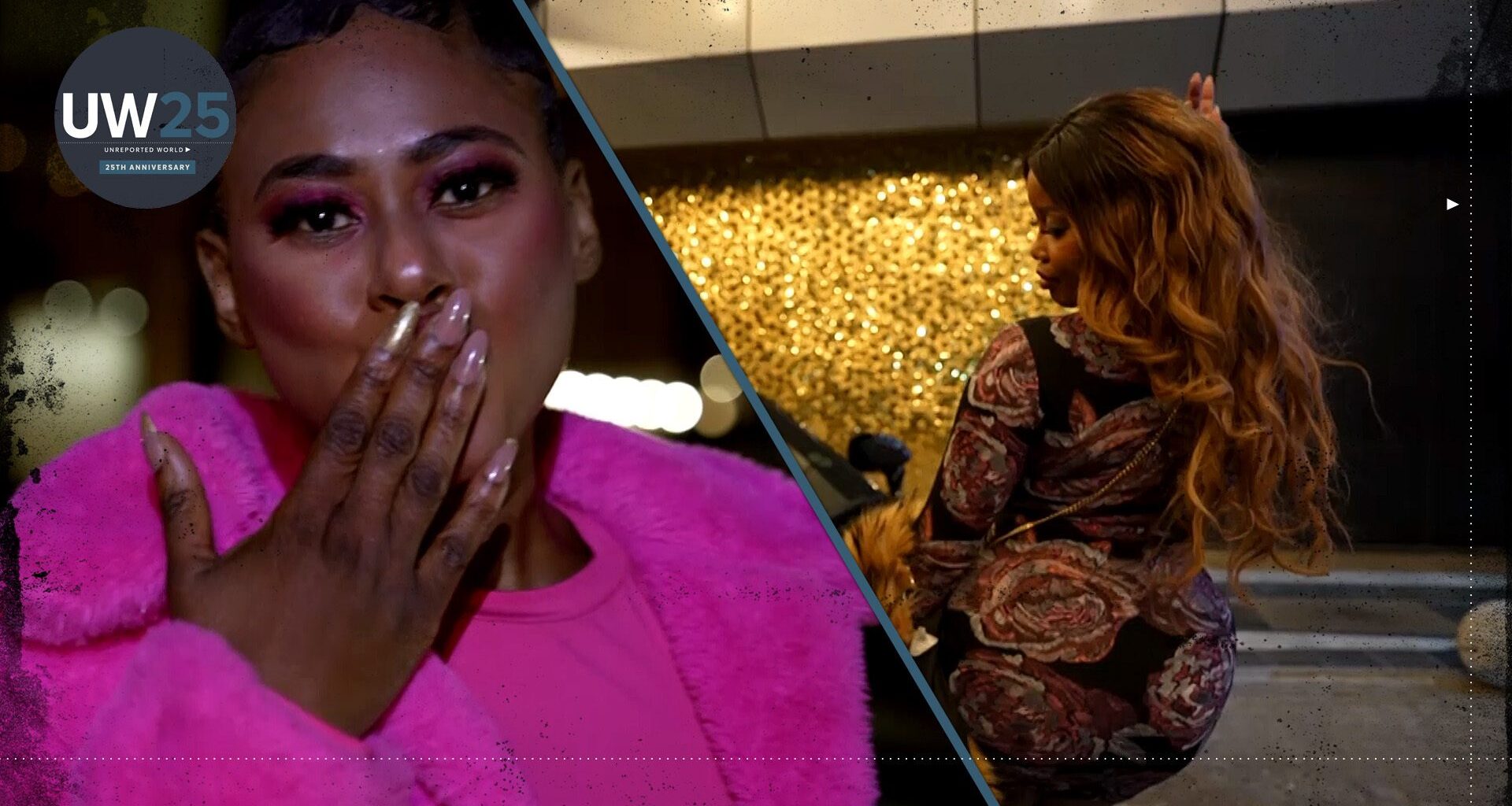Ahead of today’s broadcast of the latest Unreported World episode on Channel 4, News Correspondent Symeon Brown reflects on what he learned while filming the episode focused on the ‘Slay Queen’ phenomenon in South Africa.
The idea of marrying for money is nothing new.
But spend enough time online, and you’ll soon encounter the new wave of content creators promoting the belief that poor men are unworthy of love and certainly not sex.
Often, the most-watched content on TikTok, Instagram and Facebook consists of gendered videos appealing to the insecurities of young men and women.
These videos offer dating advice or express disdain toward the opposite sex, knowing that anything provocative is more likely to go viral.
Globally, the world is now familiar with manosphere influencer and alleged sex trafficker Andrew Tate, who faces criminal charges he denies. The podcaster first became a household name by encouraging young men to improve their income, fitness and social status if they wish to dominate women.
But what often goes unquestioned are the equally influential, witty videos, memes and podcasts targeted at young women, that repackage the same patriarchal, conservative and hyper-capitalist values pushed onto men only with a feminist guise.
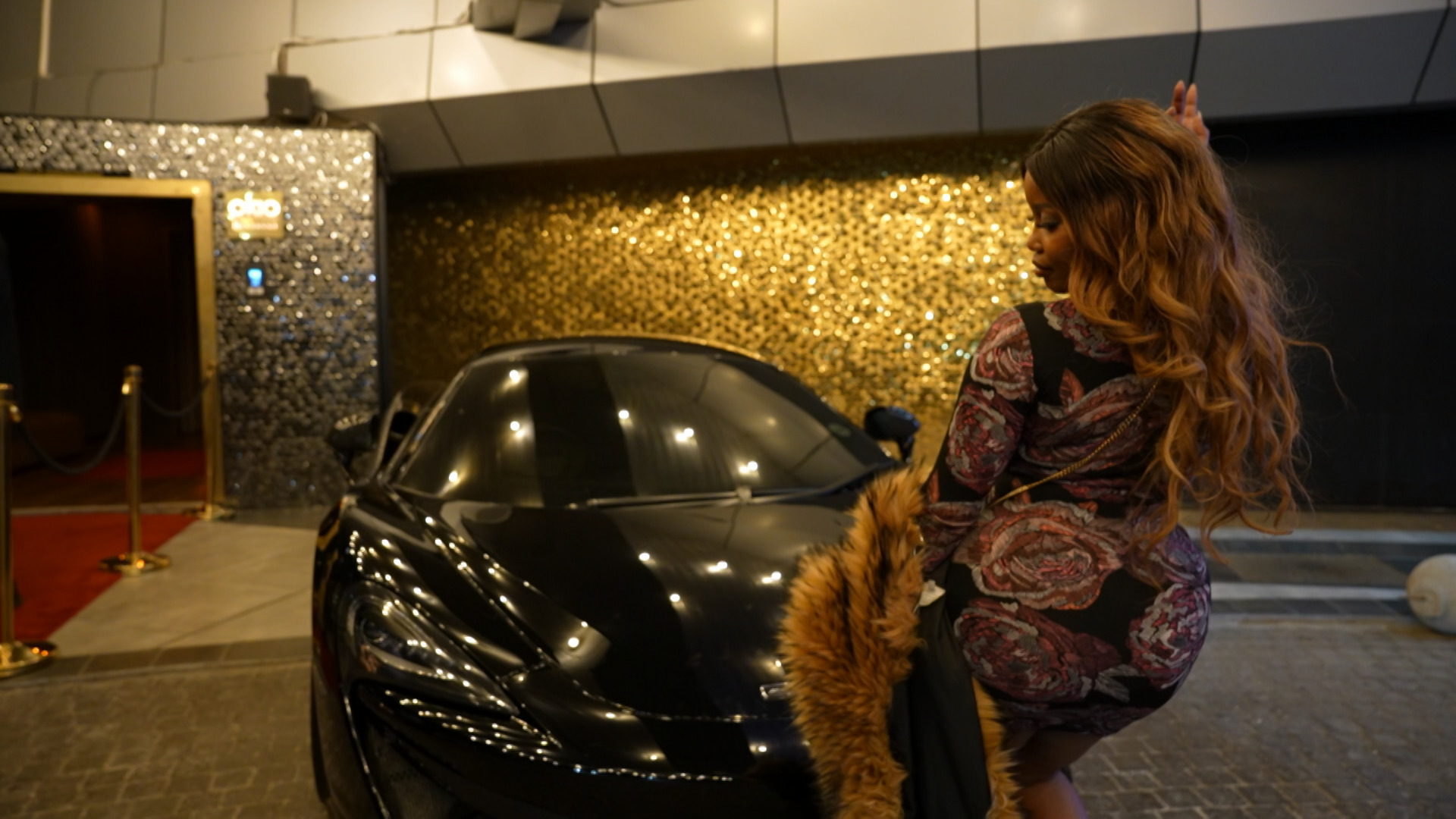

You may not have heard of the late Kevin Samuels or Shera Seven, but they reigned as king and queen of viral relationship content, offering advice to their largely black international audiences on how to succeed in transactional dating.
In their world view, a man’s value lies in his wallet and a woman’s in her physical appeal. These archaic ideas are thriving in new media spaces, where secular influencers refer to religious ideals of female purity and male ambition to rank human beings as either “high” or “low value.”
So-called slay queens are the glamorous young women who prioritise relationships with men who can fund their lifestyles and encourage others to ‘choose finance over romance’ with ‘broke men’.
Increasingly, this viral content is not just aimed at young adults, but at anyone single. These videos and podcasts have found a special home amongst black internet users especially.
American influencers like Tate, Shera Seven and Kevin Samuels are at the helm of a world of DIY podcasts and Instagram accounts filled with extreme relationship hot takes, consumed across black America, black Britain and cosmopolitan African cities like Nairobi, Lagos and Johannesburg.
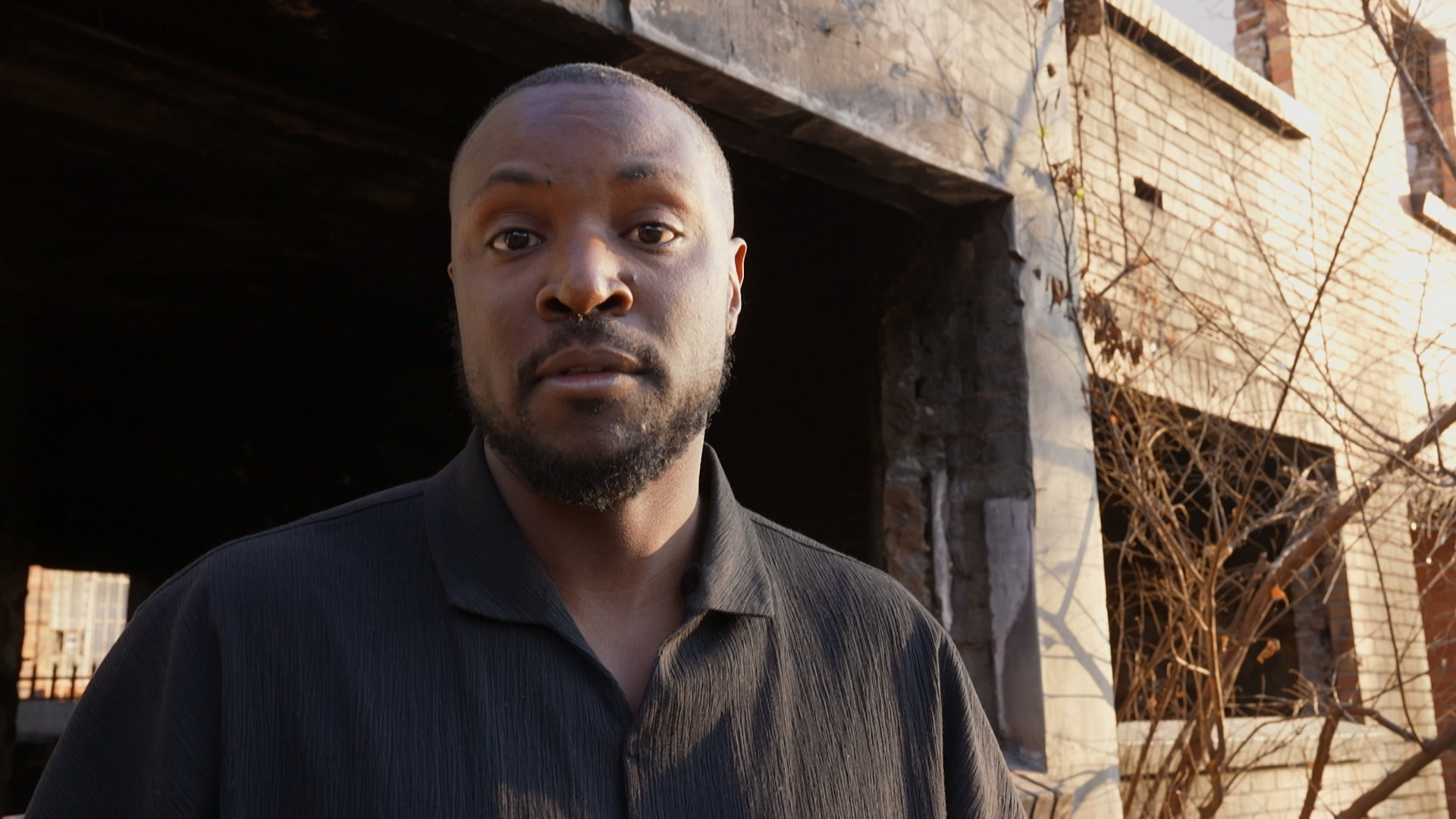
 Channel 4 News Correspondent Symeon Brown reporting from South Africa
Channel 4 News Correspondent Symeon Brown reporting from South Africa
It is the ubiquity of this content that led me to the world’s most unequal country, where the burden falls heaviest on women.
Meet South Africa’s Slay Queen
At the centre of South Africa’s gender war is a controversial digital persona: the slay queen. Once a term of empowerment, it’s now frequently used as a derogatory slur aimed at almost any young woman who dares post a selfie on a night out. Although the title carries a stigma, the women I met in clubs and bars seeking wealthy men in Johannesburg were more than happy to wear it.
So-called slay queens are the glamorous young women who prioritise relationships with men who can fund their lifestyles and encourage others to ‘choose finance over romance’ with ‘broke men’.
In South Africa, slay queens are both adored and despised. They’ve become cult figures in an ongoing digital gender war. The digital gender divide between young men and women is a global phenomenon, but in South Africa, the divide is stark.
In South Africa, slay queens are both adored and despised. They’ve become cult figures in an ongoing digital gender war.
Johannesburg is a modern city wrestling with traditional values, with young men and women each demanding the opposite sex meet conservative ideals they themselves have little interest in fulfilling. In the city, I met young people navigating a cocktail of competing ideals.
Young women viewed monogamy as virtuous, while young men invoked polygamy as a cultural right protected by law. Some men demanded women take on traditional roles, despite being absent fathers themselves. At the same time, many women wanted conservative men to be traditional providers, while retaining the freedoms of modern womanhood.
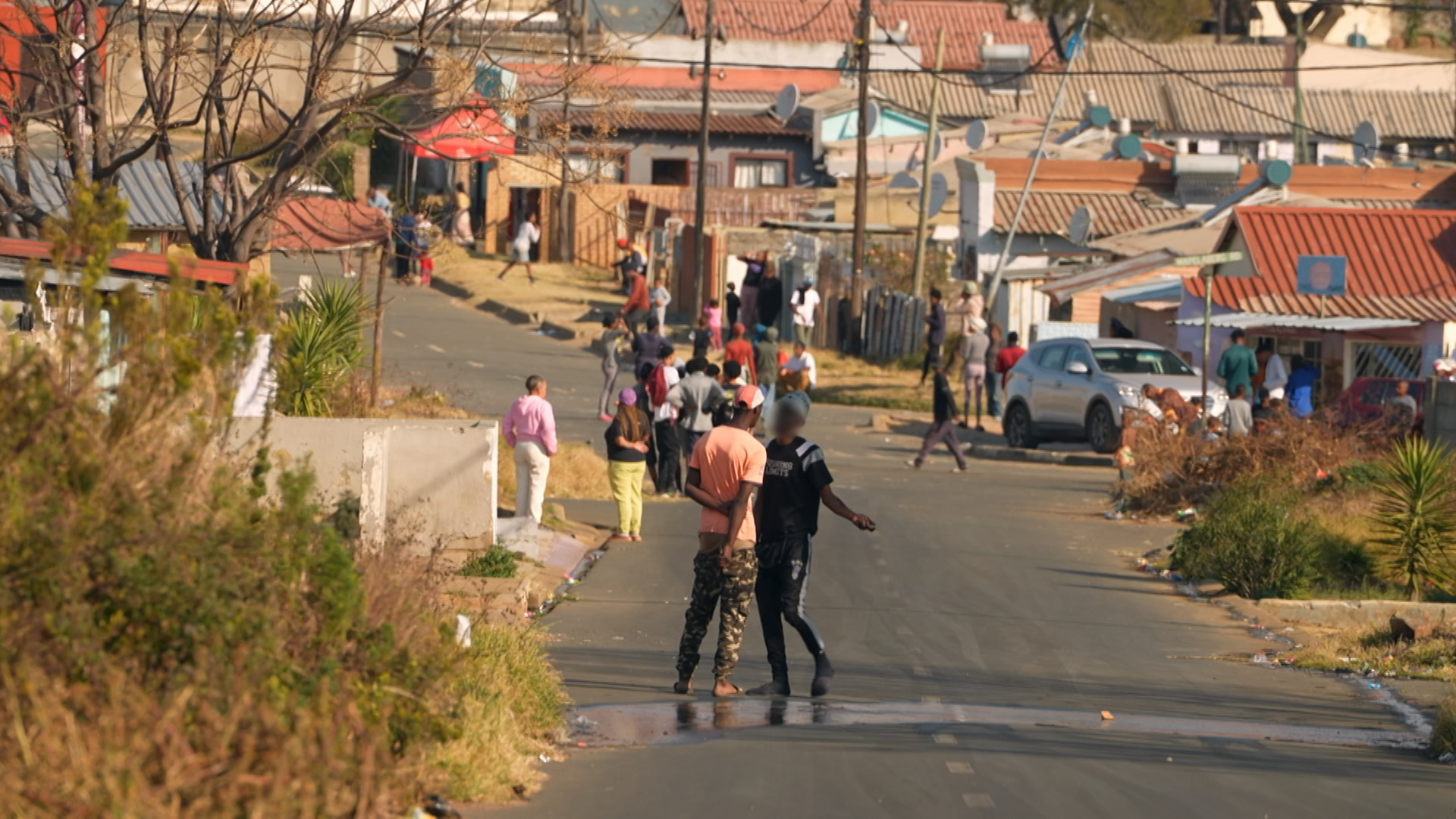

These gender tensions unfold against a backdrop of chronic unemployment and extreme inequality. In post-apartheid South Africa, both black men and women have embraced American hustle culture, yet most remain locked out of the country’s wealth. Rather than confronting systemic injustice, many have turned their frustrations inward against each other with devastating consequences for black women.
The country has high rates of femicide, with three women a day killed by a sexual partner. Self-described slay queen Habiba Makgatho told me that high levels of domestic violence, combined with the absence of men supporting childcare or household needs, have made women more pragmatic in their dealings with men. Simply put, women say they can no longer afford the cost of loving men.
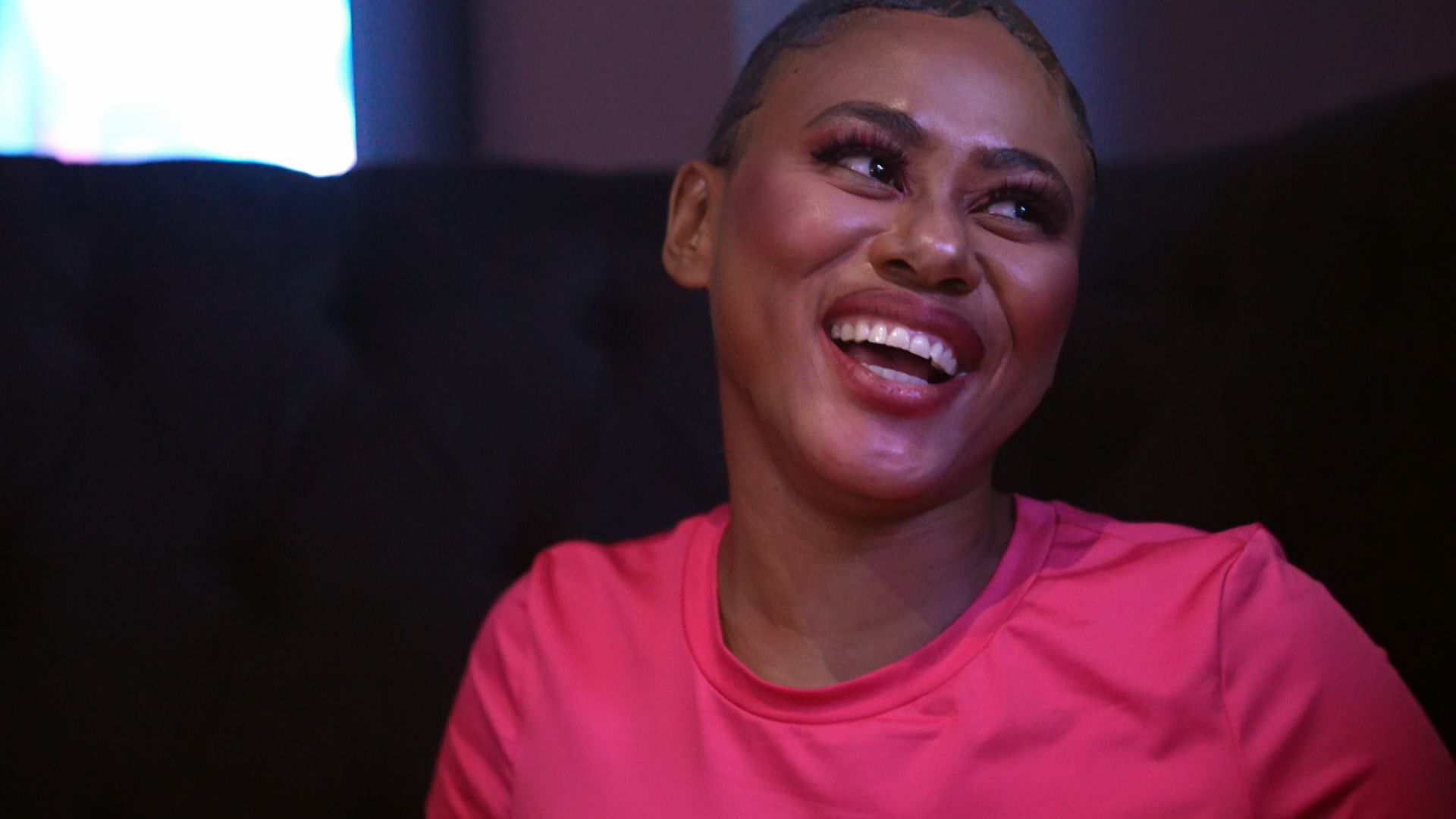
 Self-described ‘slay queen’ Habiba Makgatho
Self-described ‘slay queen’ Habiba Makgatho
For many, this economic and emotional disillusionment has driven the rise of transactional relationships and elevated the slay queen persona. However, the lifestyle is accused of blurring the line between hook-up culture and sex work.
In Johannesburg, men are increasingly being asked to pay an allowance called ‘mavuso’ after sexual encounters. Meanwhile, in local tabloids and on male-dominated podcasts, slay queens are painted as femme fatales involved in crimes like drugging, robbing, and extorting men.
The term slay queen is increasingly being used to justify gender-based violence, with male gangs villainising any female target as a slay queen.
But beneath this backlash lies a deeper danger.
The term slay queen is increasingly being used to justify gender-based violence, with male gangs villainising any female target as a slay queen.
On closer look the so-called slay queen is a fiction, summoned by men, content creators courting controversy and influencers in the manosphere who build audiences maligning women.
More disturbingly, the title has helped mask a darker reality: a sexual pyramid scheme. Beneath the glamorous hierarchy of self-described slay queens appears a network of women allegedly enticing their peers into more direct sex work and trafficking them against their will.
Johannesburg is a city built on the gold rush of 1886. More than a century later, not everything that glitters here is gold.
Unreported World: Special Substack series
To celebrate Unreported World’s 25th anniversary, Channel 4 News is publishing a special series of newsletters on Substack dedicated to the foreign affairs programme.
Each newsletter article – written by our award-winning journalists – will examine and reflect on the extraordinary episodes bringing unique insight.
https://channel4news.substack.com/

